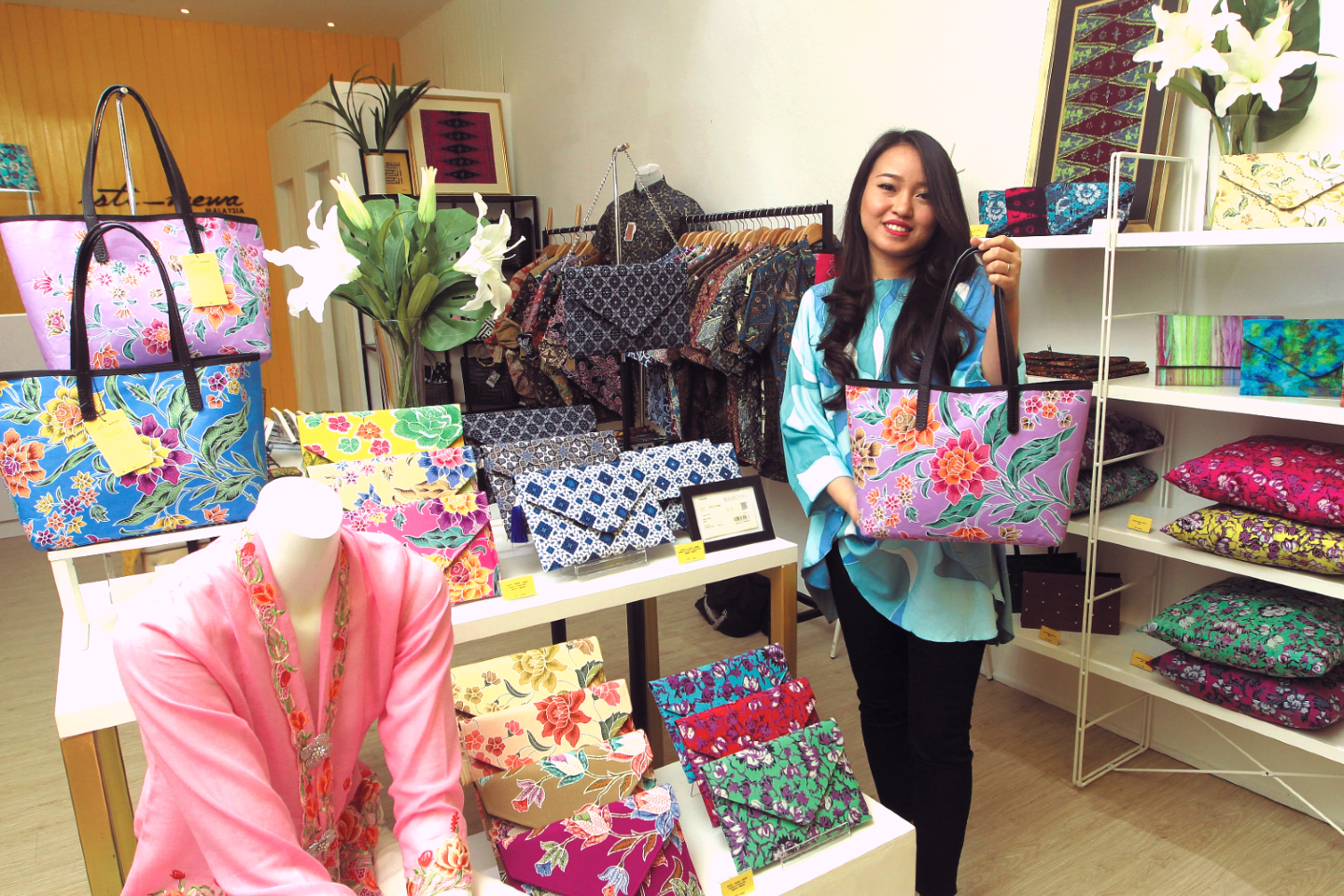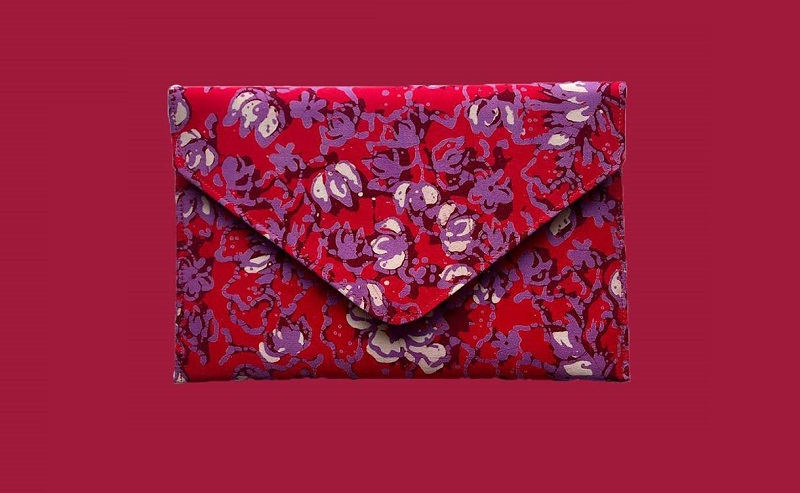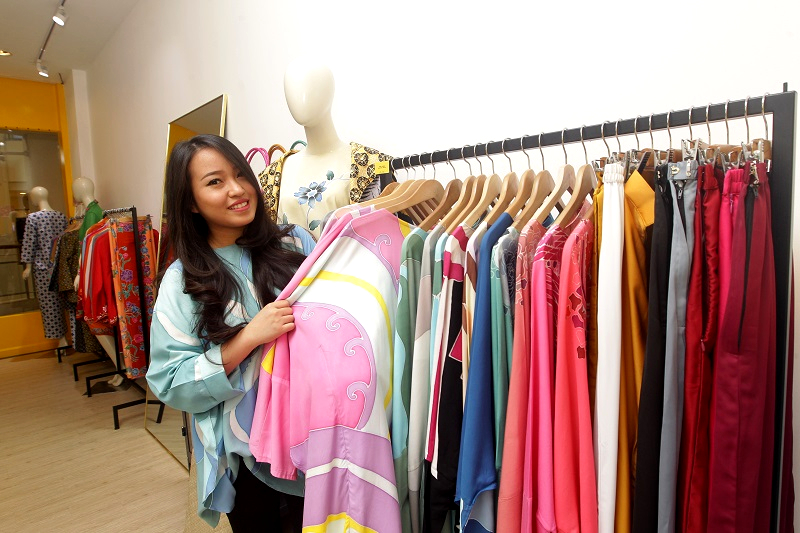
Syerie Zulkifli quit her managerial position at Malaysia Airports Holdings Bhd to pursue her interest in crafting (Photo: Haris hassan/The Edge)
Syerie Zulkifli has always loved crafting and is also an avid collector of batik materials. So, her decision to make use of her treasured collection, with the help of YouTube tutorials and her trusty sewing machine, and fashion them into beautiful bags came about almost spontaneously. Showing off her new creations at events and parties, she garnered interest from family and friends for clutches of their own. When her friends urged her to set up a pop-up store, Syerie took her products to Publika’s weekend bazaar and has not looked back since. “It was really good and I sold quite well at my first bazaar. I was getting feedback from customers and they were saying that this is something new,” she says.
Syerie launched Isti-mewa, which means special in Malay, and started off with her website. She quickly found that her audience prefer to touch-and-feel products so she joined more bazaars. However, juggling between her full-time role in public relations at Malaysia Airports Holdings Bhd and her batik bags business became difficult. Isti-mewa was only five months old when Syerie decided to quit her job. “I think I took a risk. I had a good, stable job and my position was managerial. When I told everyone, they said, ‘Are you crazy? This should just be part-time.’ I said, no, because I can see this grow into a bigger brand or even into the international market,” she explains.
istimewa.jpg

Understanding that with business one has to take risks, Syerie gave herself two years to try and make Isti-mewa successful. “My biggest challenge was to make people accept that craftsmanship, or anything handmade, takes time and is made with love, has a premium price. This is a new item and people are always sceptical that if it is handmade or if it uses local batik, then it should be cheaper. My bags go for RM180 to RM500,” she says. Syerie elaborates that her process is all by hand and that she even cuts the fabric herself. “It is not like mass production where you can just cut all the fabrics into the same thing. I specifically choose the sections and which part of the design I want to use.”
When Publika invited Isti-mewa to have a booth at its Ramadan bazaar, Syerie went all out. To fill her booth, she also introduced clothes such as batik tops and baju kurung sets. She says clothes were an easy transition for her. “Clothes are basic. If you can sew clothes it does not mean you can sew a bag because bags are very technical. You need to have the right lining and support inside the bag. Selecting the raw materials is also a challenge, so what differentiates my bags from other brands is the quality,” she adds.
peo_syerie_3_hh.jpg

Syerie sources her batik from artisans in Terengganu and Kelantan, choosing hand-blocked or hand-painted fabrics that suit her design taste. “I still want to promote local artisans in Malaysia. They produce and I will pick what I like from them. I want us to support each other. When I make a clutch and travel overseas, people say, ‘Oh, this print is so nice, where did you get it?’ I will say, for example, ‘it is from Wan Azahar Batik’. So I promote the artisan as well,” she says.
One of the exciting opportunities that pushed Isti-mewa’s sales was when the brand was invited by Matrade to be part of the New York Fashion Week. “They actually sent my products over there and they showcased it. I gave my name cards, my lookbook, and the result was really, really good. I got so many orders from that New York trip,” Syerie says. Isti-mewa now has stockists in 13 hotels in Malaysia, Indonesia and Thailand, including Shangri-La, St Regis, Berjaya Langkawi and Tanjong Jara Resort. Their products are also found in Isetan and Robinsons.
Syerie has a team of eight, including her husband who quit his job in advertising to support her business. “The most important people are my production team because they help me to sew. Now I don’t sew anymore, I am more towards branding and marketing. My husband takes care of the operations side. This is so I can focus on branding and creating new things,” she adds. Isti-mewa also provides an avenue for big companies to get corporate gifts that better represent the country, with items such as batik card holders.
The brand recently opened its first bricks-and-mortar store in Bangsar Village II. “Opening a shop here is a gamble for me. When I wanted to open the shop, family and friends were like, ‘Why do you want to open a shop?’ But my customers don’t want to buy from a bazaar anymore because it is considered a premium item. I also have clothes and people don’t want to try on things at a bazaar. They want a proper boutique and fitting room,” she explains.
Syerie is taking smart risks with her business in the hopes of expanding internationally. “I want to take this brand overseas because this is the time people are really appreciative of handmade things. Nowadays, people know about batik so I think it’s ripe for expansion. I am continuously looking for partners for collaborations or investors to help me grow,” she says.
What makes Isti-mewa special is its customer relationship, which Syerie personally developed. “My business grows because of my customers — they give me input, tell me what they want and I also build a really strong bond with my regular customers,” she says. Her approach helps her to fully understand her customers’ needs, forming strong friendships and putting her on their speed dial for any customisations or emergency purchases. Sounds pretty istimewa, already!
This article first appeared on Aug 26, 2019 in The Edge Malaysia.


